Hugh Rickards - Chair

Helpline:
Trustees are collectively responsible and accountable for the governance, management and administration of the charity in line with the charity's Vision, Mission and Values which you can find below.
They oversee the financial performance and ensure that funds are well spent for the purpose for which they were raised. They are responsible for setting the strategic direction of the charity - you can read the 2023 - 2027 plan below.
Trustees are elected by members of the charity in the Annual General Meeting (AGM). Each year, the Executive Council elect a Chair, Vice Chair and Treasurer to lead the board’s governance, operational and financial discussions and decision-making.
As part of the management of the Charity’s business, the Trustees are responsible for delegating responsibilities to relevant committees, the Chief Executive and the senior management team to undertake work on their behalf. It is then the responsibility of the Chief Executive, Senior Management team and any sub-committees, where appropriate, to implement the decisions of the trustees and report back to the board via the agreed monitoring process.
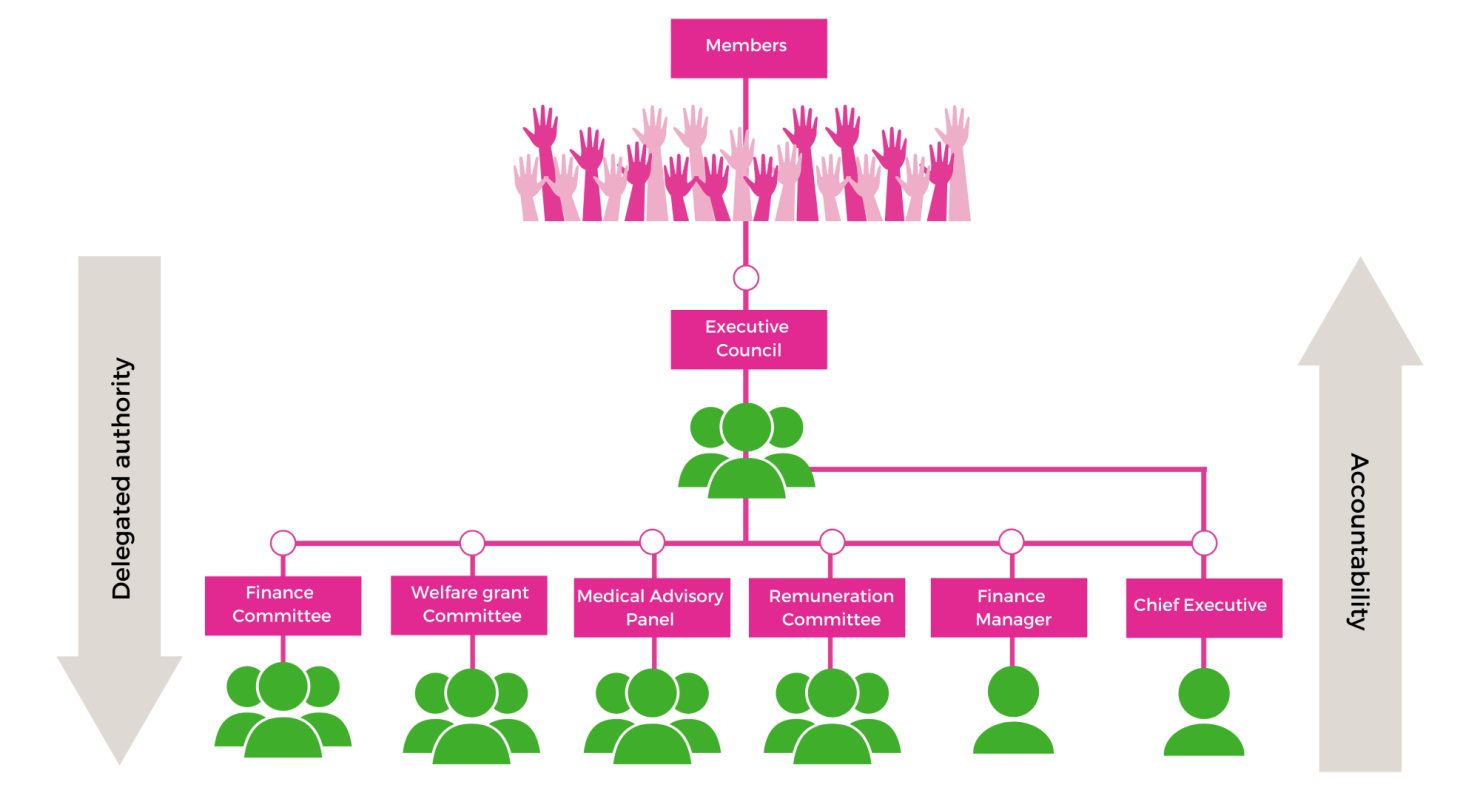
There are six main duties of a charity trustee, as outlined by the Charity Commission:
Hugh Rickards - Chair

Nicholas Heath - Treasurer
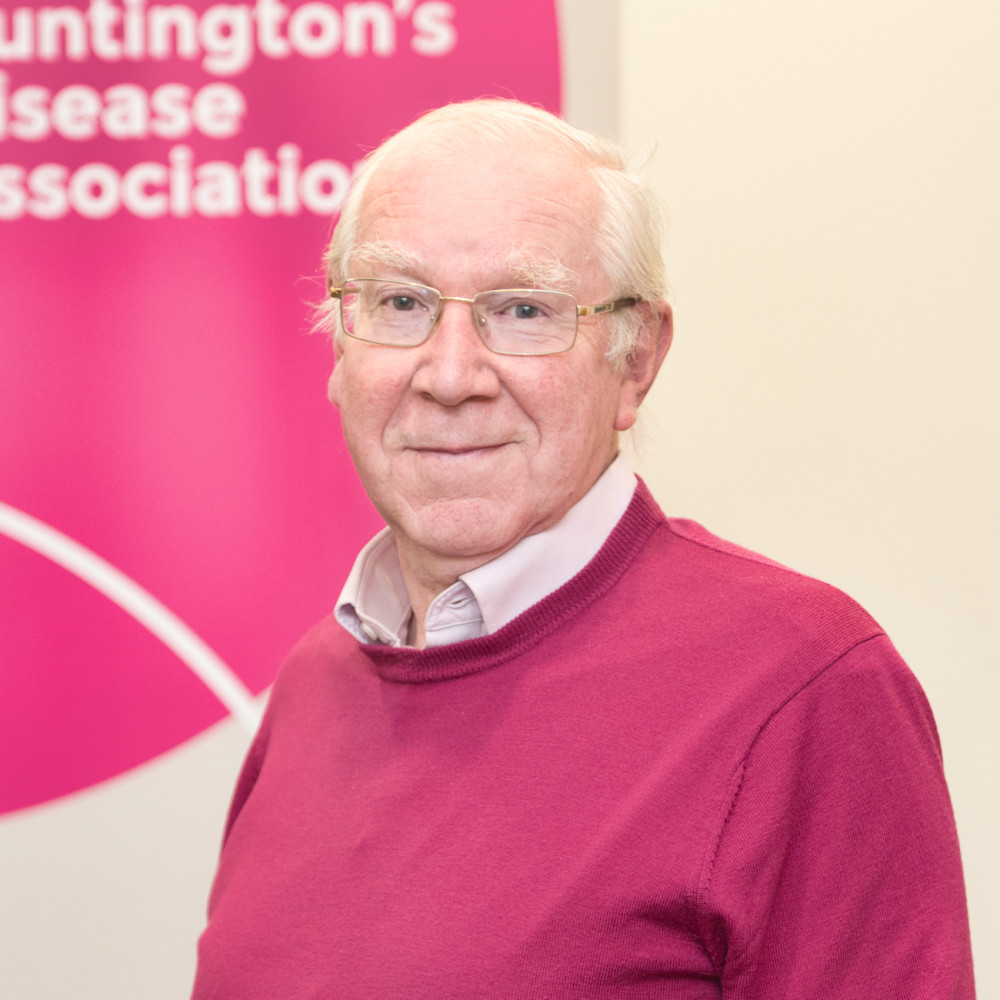
Sian Barker - Vice Chair
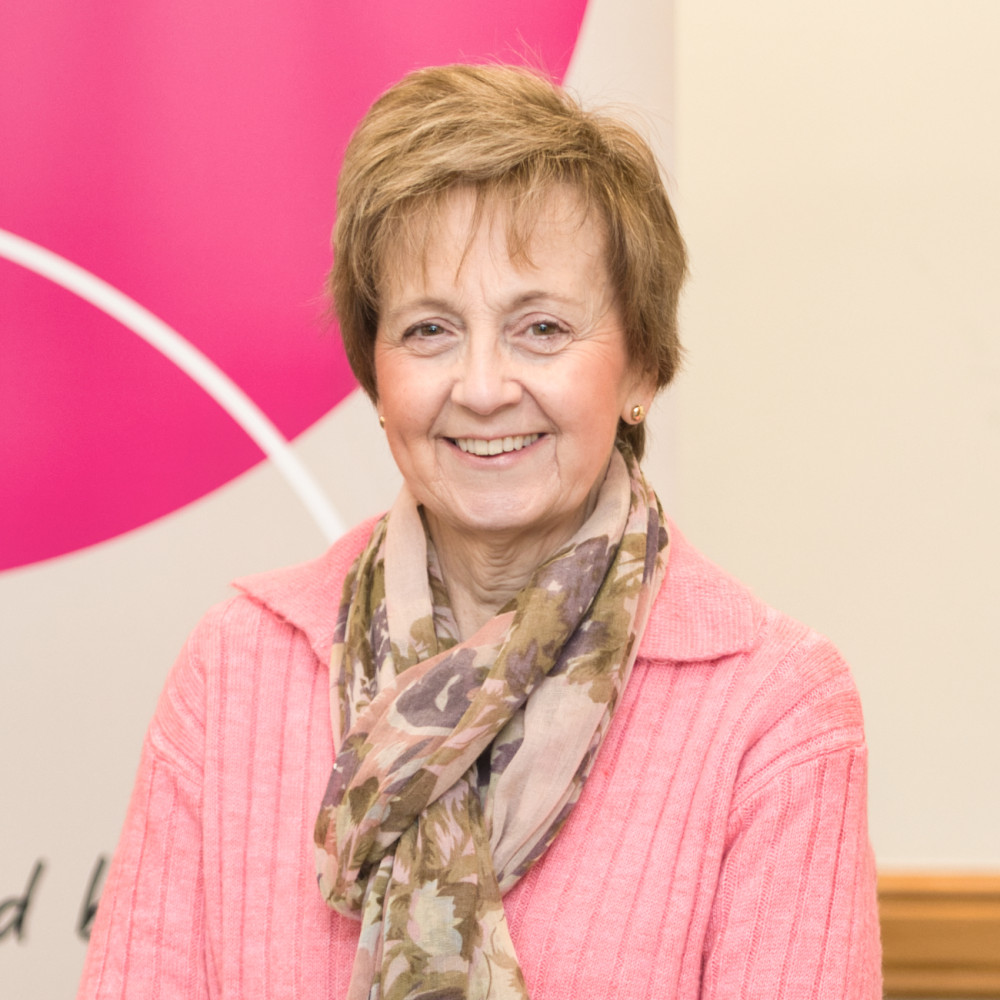
Dr Akshay Nair - Trustee

Cathy Lyon - Trustee
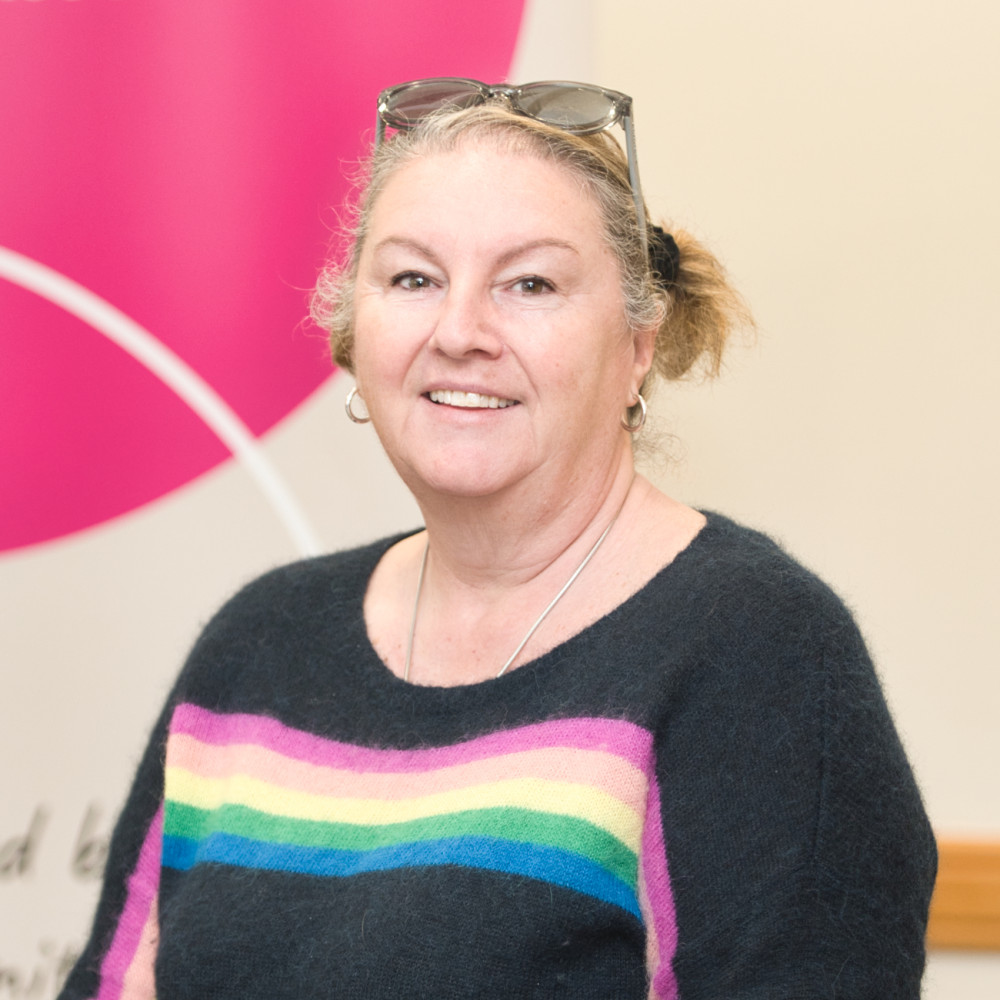
Dal Padda - Trustee
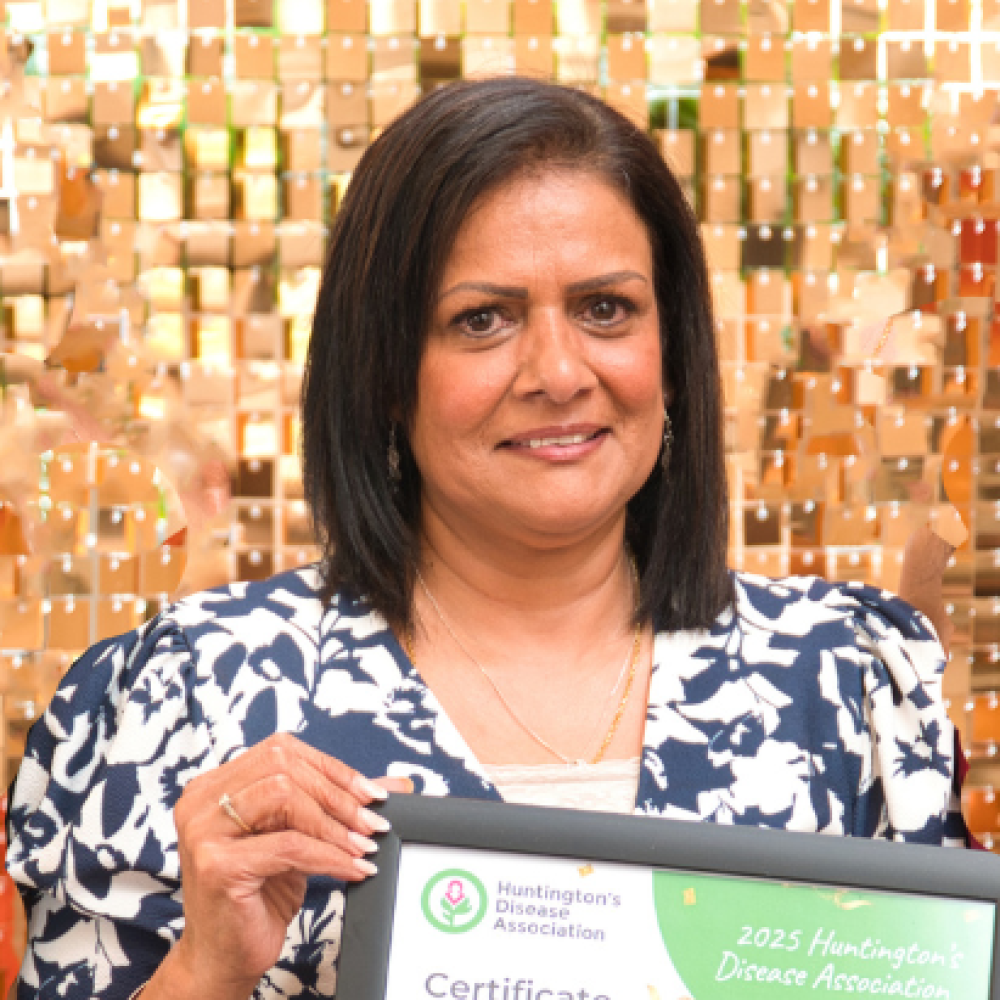
David Thomas - Trustee

Nayana Lahiri - Trustee
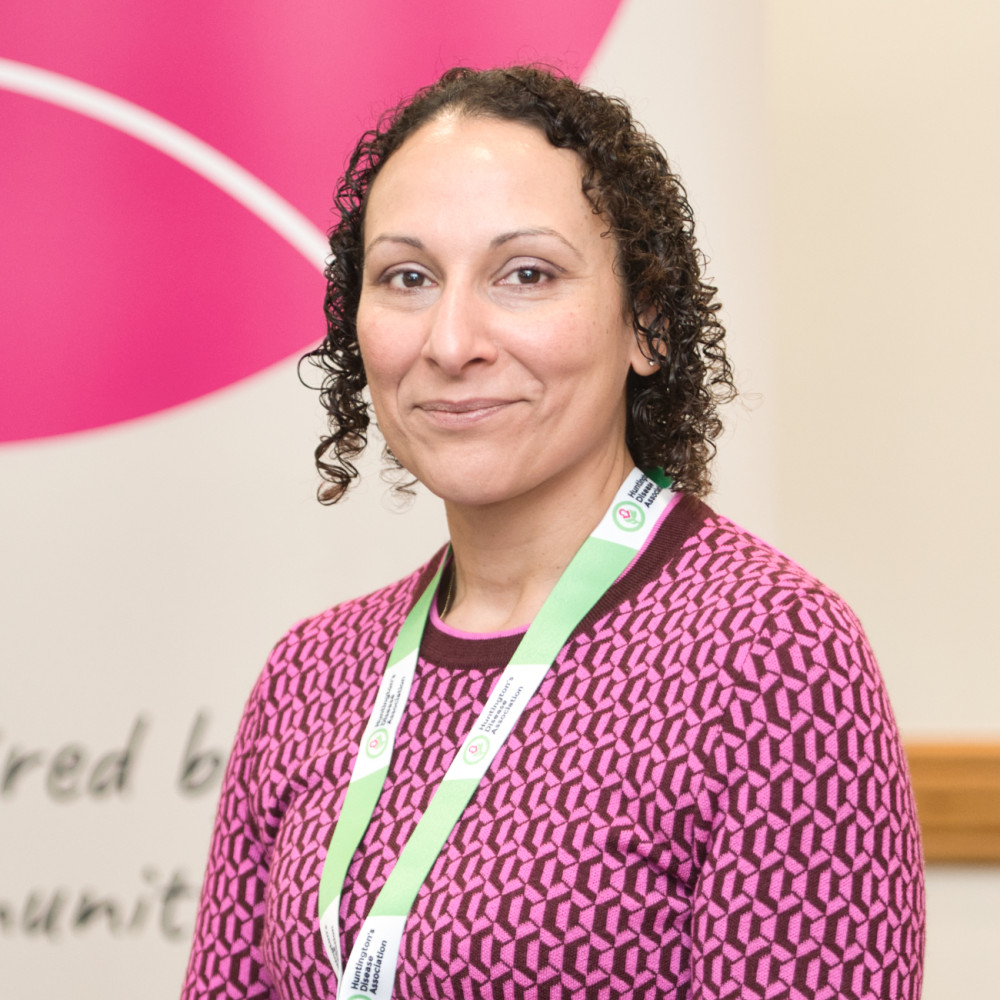
Sharon Bakewell - Trustee
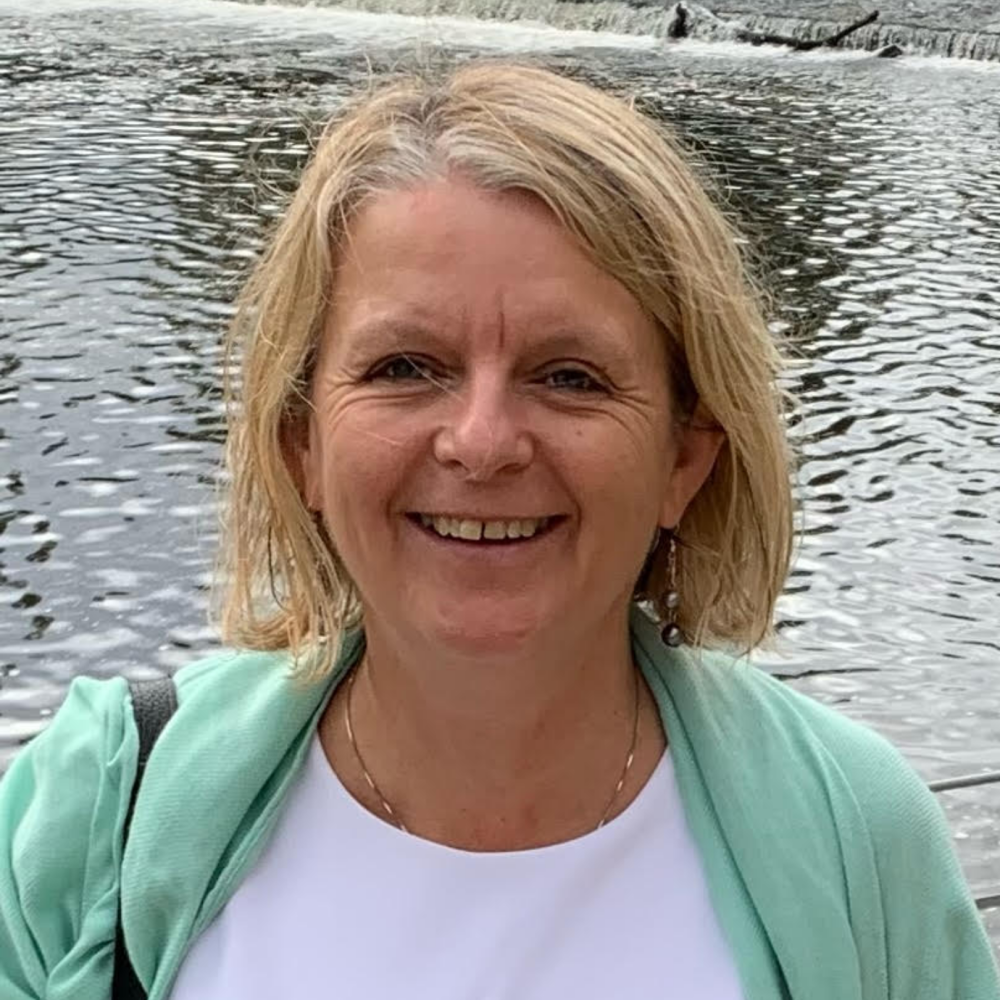
Steve Duckett - Trustee

Code of Conduct
This code of conduct is not a definite statement of responsibility but sets out the broad principles by which the Executive Council members agree to operate.
Trustees have a responsibility for determining, monitoring and keeping under review, plans and procedures within which the Huntington’s Disease Association operates.
They have a duty to act fairly and without prejudice at all times.
In so far as they have, or share, responsibility for the employment of staff, trustees should fulfil all reasonable expectations of a good employer.
Trustees should consider carefully how their own decisions might affect the charity.
Being a member of the Executive Council involves the commitment of a significant amount of time. Trustees should remember this before agreeing to serve, or continuing to serve.
All trustees should involve themselves actively in the work of the Executive Council and accept a fair share of responsibility, including serving on sub-committees and working groups.
Regular attendance at meetings, both of the Executive Council and sub-committee is essential.
Trustees who miss three consecutive meetings will be asked to step down, unless there are exceptional circumstances.
The Executive Council should strive to operate as a team.
Trustees should develop effective professional working relationships with each other, the staff and members of the Huntington’s Disease Association.
As official representatives of the charity, trustees must always be careful where and with whom they discuss any Huntington’s Disease Association matters.
All sensitive information learned about those supported by the charity or any of the staff, or any aspect considering the Huntington’s Disease Association, wherever obtained, must be treated in confidence at all times.
Decisions reached at Executive Council meetings are minuted. However, the detailed discussions on which decisions are based are confidential.
All trustees should be encouraged to participate actively in the Executive Council board meetings. They should express their views openly but accept collective responsibility for all decisions taken. On occasions trustees may disagree with a decision taken but should nevertheless respect the collective decision.
A trustee should only speak or act on behalf of the Executive Council when they have been specifically authorised to do so.
In receiving criticisms or complaints relating to the Huntington’s Disease Association or its staff, trustees should refer the matter to the Chief Executive unless it relates to members of the board of trustees when they should refer the matter to the Chair who will initiate the Huntington’s Disease Association’s complaints procedure.
Trustees should follow agreed procedures when wishing to make critical comment on any aspect relating to the charity, the Executive Council and any employee of the charity. Namely, that they should refer the issue to the Chair and if appropriate the line manager so that it can be discussed at the next Executive Council meeting.
Trustees have a responsibility to maintain and develop the good reputation of the Huntington’s Disease Association. Their actions should reflect this.
As ambassadors for the charity, trustees are encouraged to use social media to promote the work of the charity either through appropriate use of their personal accounts or accounts set up specifically for Huntington’s Disease Association purposes. Further guidance should be sought from the charity’s Communications team before setting up such accounts.
Trustees should be aware that any information they make public could affect how people perceive the charity. They must make it clear when they are speaking for themselves and not on behalf of the charity.
Trustees who have a personal blog or website that links them to the Huntington’s Disease Association should discuss any potential conflicts of interest with the Executive Council. Similarly, trustees who want to start blogging and wish to say that they volunteer for the charity should also discuss any potential conflicts of interest.
Trustees should be aware of their association with the Huntington’s Disease Association and ensure their profile and related content is consistent with how they wish to present themselves.
The charity works with several high-profile people, including celebrities, journalists, politicians and major donors. If trustees have any information about high profile people that have a connection to our cause, or if there is someone who they would like to support the charity, they should speak to the Communications team to share the details. Any action that follows can then be coordinated to avoid hindering any relationships being managed or formed by the charity.
Trustees should avoid approach high profile people from their personal social media accounts, including asking for retweets about the charity, without discussing this with the Communications team first.
If a trustee is contacted by the press about their social media posts that relate to the Huntington’s Disease Association, they should talk to the Communications team and Chief Executive immediately and under no circumstances respond directly until clear of the Huntington’s Disease Association’s position on the matter in question.
The Huntington’s Disease Association is not a political organisation and does not hold a view on party politics or have any affiliation with or links to political parties. When representing the charity, trustees are expected to hold the charity’s position of neutrality. Trustees who are politically active in their spare time need to be clear in separating their personal political identity from the Huntington’s Disease Association’s name, and understand and avoid potential conflicts of interest.
Trustees should never use the Huntington’s Disease Association’s logos or trademarks unless approved to do so. Permission to use logos should be requested from the Communications team.
Trustees should always protect themselves and the charity. They should be careful with their privacy online and be cautious when sharing personal information. What trustees publish is widely accessible and will be around for a long time, so they should consider the content carefully.
Trustees are encouraged to share tweets and posts issued on the Huntington’s Disease Association’s official social media channels should they wish to. When online in a personal capacity, they might also see opportunities to comment on or support the Huntington’s Disease Association and its work. However, if the content is controversial or misrepresented, this should be highlighted to the Communications team who will respond / take action as appropriate.
Any social media content shared / posted by trustees on Huntington’s Disease Association business should have a clear purpose and benefit for the Huntington’s Disease Association and accurately reflect the charity’s agreed position.
If using interviews, videos or photos trustees must be sure all relevant rights for usage have been obtained before publishing material. Trustees should not automatically assume that material is accurate and should take reasonable steps where necessary to seek verification, for example, by checking data/statistics and being wary of photo manipulation.
If a complaint is made to trustees on social media, they should act in accordance with the Huntington’s Disease Association’s complaint procedure.
Conflict of Interest
Decision-Making and Accountability
Financial Oversight
All of our annual reports and minutes are available to view online. You can download or view the most recent Annual Report on the link below.
The Executive Council has established a number of committees with delegated authority to provide advice, manage processes, make decisions and provide more detailed scrutiny of certain areas of the charity to better inform the work and governance of the charity.
Huntington's Disease Association is a charity registered in England and Wales.
Registered charity number 296453
Company number 2021975
As a registered charity in England and Wales, we comply with all relevant charity laws and regulations to ensure we are serving our communities with integrity and transparency. The Executive Council is responsible for the governance of the charity and is accountable in law for all decisions about its conduct.